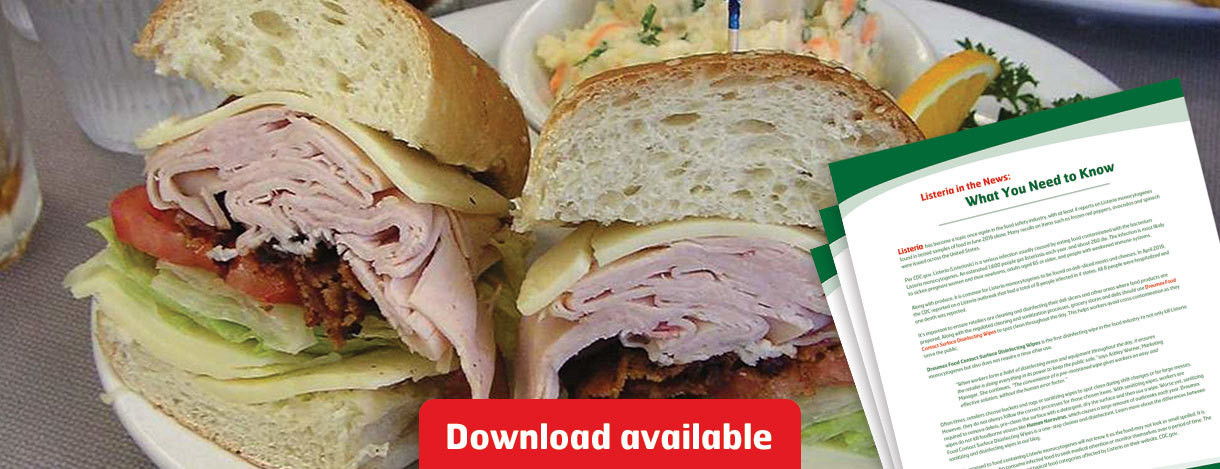Listeria Outbreaks Prompt Improved Cleaning

]Listeria has become a topic in the food safety industry lately, with at least 4 reports on Listeria monocytogenes found in tested samples of food in June 2019 alone. Many recalls on items such as frozen red peppers, avocados and spinach were issued across the United States.
Per CDC.gov, Listeria (Listeriosis) is a serious infection usually caused by eating food contaminated with the bacterium Listeria monocytogenes. An estimated 1,600 people get listeriosis each year, and about 260 die. The infection is most likely to sicken pregnant women and their newborns, adults aged 65 or older, and people with weakened immune systems.
Along with produce, it is common for Listeria monocytogenes to be related to deli-sliced meats and cheeses. In April 2019, the CDC reported on a Listeria outbreak that had a total of 8 people infected in 4 states. All 8 people were hospitalized and one death was reported.
Retailers don’t often consider the risks associated with a food-related outbreak. Financial distress, social disgracing and customer reduction all need to be considered if an outbreak occurs as a result of poor cleaning and maintenance. Ensuring workers are trained on improved cleaning procedures and observed often are critical for any business owner.
It’s important to ensure workers are cleaning and disinfecting their deli slicers and other areas where food products are handled. Along with the regulated cleaning and sanitization processes, grocery stores, delis and convenience stores are using Dreumex Food Contact Surface Disinfecting Wipes to spot clean throughout the day. These wipes help workers avoid cross contamination as they serve the public.
Dreumex Food Contact Surface Disinfecting Wipes is the first disinfecting wipe in the food industry to not only kill Listeria monocytogenes but also does not require a rinse after use. “When workers form a habit of disinfecting areas and equipment throughout the day, it ensures the retailer is doing everything in its power to keep the public safe,” says Ashley Werner, Marketing Manager. She continues, “The convenience of a pre-moistened wipe gives workers an easy and effective solution, without the human error factor.”
Often times, buckets and rags or sanitizing wipes are used to spot clean during shift changes or for large messes. However, they do not always follow the correct processes for those chosen items. With sanitizing wipes, workers are required to remove debris, pre-clean the surface with a detergent, dry the surface and then use a wipe. Worse yet, sanitizing wipes do not kill foodborne viruses like Human Norovirus, which causes a large amount of outbreaks each year. Learn more about the differences between sanitizing and disinfecting wipes in our blog.
People exposed to food containing Listeria monocytogenes will not know it as the food may not look or smell spoiled. It is important for those who consume infected food to seek medical attention or monitor themselves over a period. The CDC provides a list of symptoms and typical food categories affected by Listeria on their website, CDC.gov.

